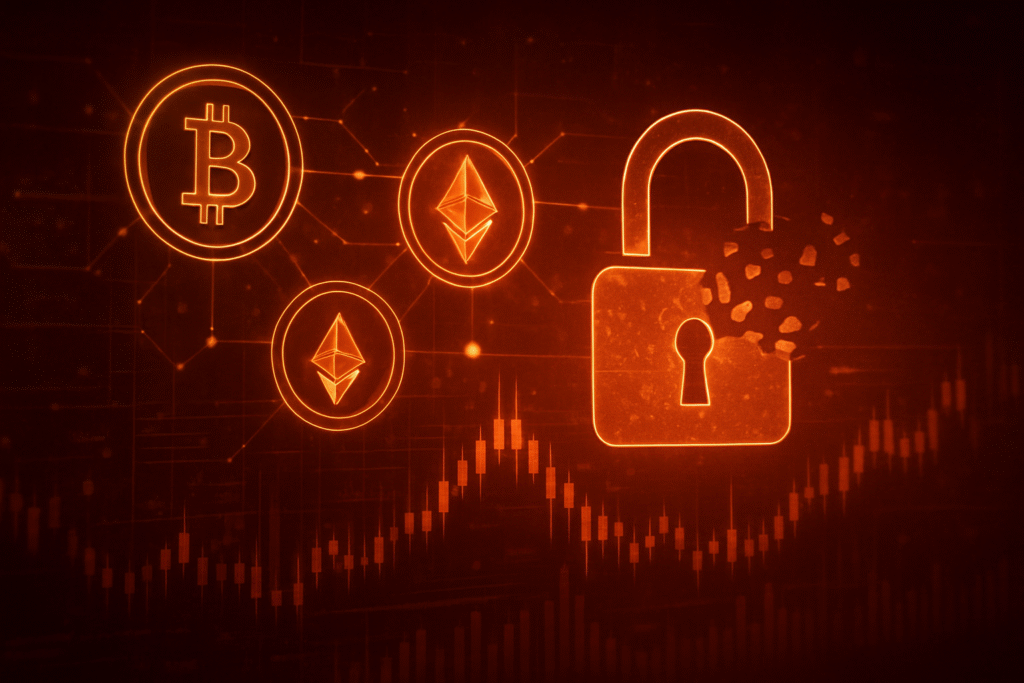
New Delhi, India – November 12, 2025 – In a significant development underscoring the relentless cybersecurity threats plaguing the cryptocurrency space, India's Enforcement Directorate (ED) today announced the provisional attachment of assets worth Rs 21.71 crore. These assets are linked to a sophisticated phishing scam that meticulously spoofed the website of leading cryptocurrency exchange Coinbase (NASDAQ: COIN), defrauding numerous users of their digital assets. The move highlights the escalating efforts by regulatory bodies to combat illicit activities in the Web3 ecosystem and serves as a stark reminder of the persistent dangers faced by crypto investors.
The large-scale cyber fraud, orchestrated by Chirag Tomar, his family members, and associates, involved an elaborate scheme to impersonate Coinbase and trick unsuspecting users into divulging critical login credentials and two-factor authentication (2FA) codes. The immediate implications for the broader crypto ecosystem are a renewed focus on user education, platform security, and the crucial role of international cooperation in tracking and recovering stolen funds. This incident, unfolding as the crypto market navigates a complex regulatory landscape, reinforces the urgent need for enhanced security protocols and proactive measures against increasingly sophisticated cybercriminals.
Market Impact and Price Action
While the direct, immediate price action specifically attributable to today's asset seizure remains to be fully observed, such high-profile enforcement actions against crypto-related fraud typically ripple through market sentiment. The news of a major phishing scam involving a prominent exchange like Coinbase, even if the exchange itself was impersonated, can trigger a cautious approach among investors. Historically, significant security breaches or large-scale fraud reports tend to introduce a degree of FUD (Fear, Uncertainty, and Doubt) into the market, potentially leading to temporary dips in investor confidence across the board.
The broader cryptocurrency market, including major assets like Bitcoin (BTC) and Ethereum (ETH), often reacts to news that highlights systemic risks, even if indirectly. While specific price movements of Coinbase's native tokens or other directly affected assets might not be immediately quantifiable, the incident could contribute to a general risk-off sentiment, affecting trading volumes and liquidity as investors reassess their exposure to platforms perceived as vulnerable. Compared to past events, where direct hacks of exchanges led to sharp price declines, this phishing scam, while serious, might have a more nuanced impact, focusing more on regulatory scrutiny and user behavior rather than a direct breach of a platform's hot wallets. However, it underscores the ongoing challenge of securing digital assets, a narrative that can influence long-term investment strategies and push for greater institutional and retail adoption of self-custody solutions or more robust security features.
Community and Ecosystem Response
The crypto community's response to such events is typically a mix of frustration, calls for increased security, and shared warnings. Social media platforms like X (formerly Twitter) and Reddit are abuzz with discussions, ranging from users recounting similar phishing attempts to experts offering advice on identifying and avoiding scams. Crypto influencers and thought leaders are likely to amplify these warnings, emphasizing the importance of vigilance, strong password practices, and the critical need to verify URLs before entering credentials.
The incident is expected to reignite conversations around the effectiveness of current user authentication methods and the need for more sophisticated anti-phishing technologies. While Coinbase was the target of impersonation, the event will undoubtedly prompt all major exchanges and DeFi protocols to reinforce their security advisories and potentially roll out new features to protect users. The broader Web3 ecosystem, including NFT projects and decentralized applications, often feels the ripple effect of such incidents, as a general decline in trust can impact user engagement and investment across the entire spectrum. The sentiment on crypto Twitter and Reddit will likely lean towards collective action, urging both platforms and individual users to elevate their security posture in the face of evolving cyber threats.
What's Next for Crypto
The ED's decisive action against the Coinbase phishing scam signals a clear trend: regulatory bodies globally are intensifying their efforts to police the crypto space and protect consumers. In the short term, this incident will likely lead to a heightened focus on cybersecurity education campaigns by exchanges and industry associations. Expect to see more prominent warnings, educational content, and possibly even new security features rolled out by platforms to help users identify and avoid phishing attempts.
In the long term, this event could serve as a catalyst for greater collaboration between law enforcement agencies across different jurisdictions to combat cross-border cybercrime more effectively. The recovery of assets in a phishing scam, particularly one involving a major international platform, sets a precedent and demonstrates the growing capability of authorities to trace and seize illicitly obtained digital assets. For projects and investors, strategic considerations will increasingly revolve around due diligence on platform security, the adoption of hardware wallets for significant holdings, and active participation in community-driven security initiatives. Possible scenarios include increased regulatory pressure for exchanges to implement more stringent anti-phishing measures, and a shift in investor preference towards platforms with demonstrably superior security track records.
Bottom Line
The provisional attachment of Rs 21.71 crore in connection with the Coinbase phishing scam is a critical moment for the crypto industry, highlighting the persistent and evolving nature of cybersecurity threats. For crypto investors and enthusiasts, the key takeaway is the absolute necessity of personal vigilance and robust security practices. Always verify the authenticity of websites and communications, enable multi-factor authentication, and be extremely cautious of unsolicited messages or calls demanding sensitive information.
The long-term significance of this event lies in its demonstration of regulatory resolve. It underscores that while the crypto world operates on decentralized principles, illicit activities will face increasing scrutiny and enforcement. This ongoing battle against cybercrime is crucial for fostering wider crypto adoption, as trust and security remain paramount concerns for new entrants. As we move forward, monitoring key metrics such as the frequency of successful scam attempts, the effectiveness of law enforcement in recovering stolen funds, and the proactive measures implemented by exchanges will be vital indicators of the industry's maturation and resilience against these pervasive threats.
This article is for informational purposes only and does not constitute financial or investment advice. Cryptocurrency investments carry significant risk.





